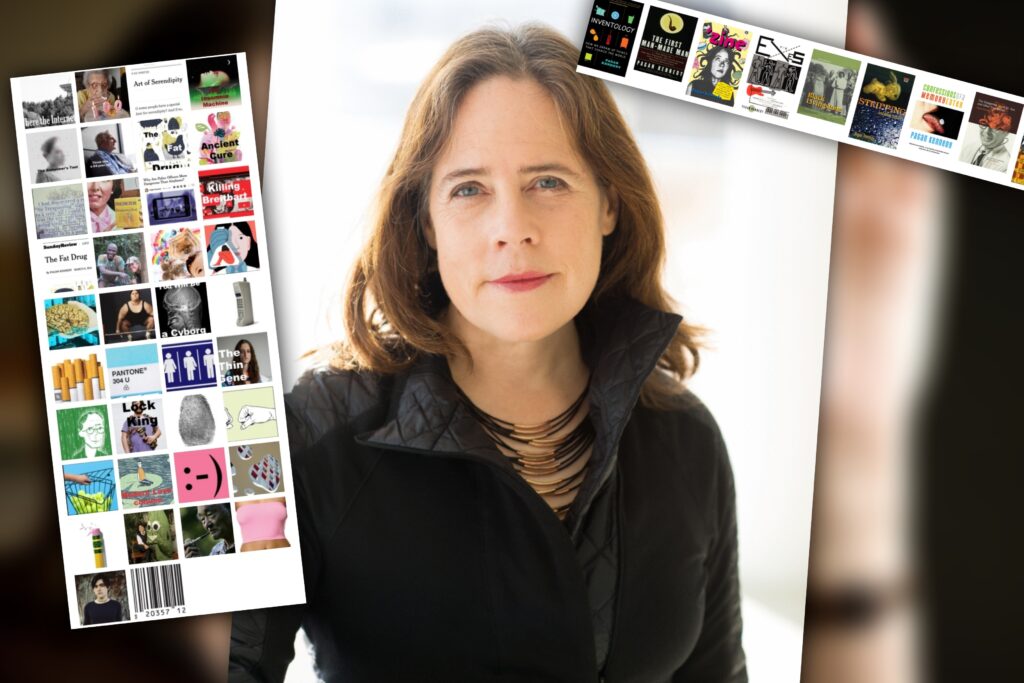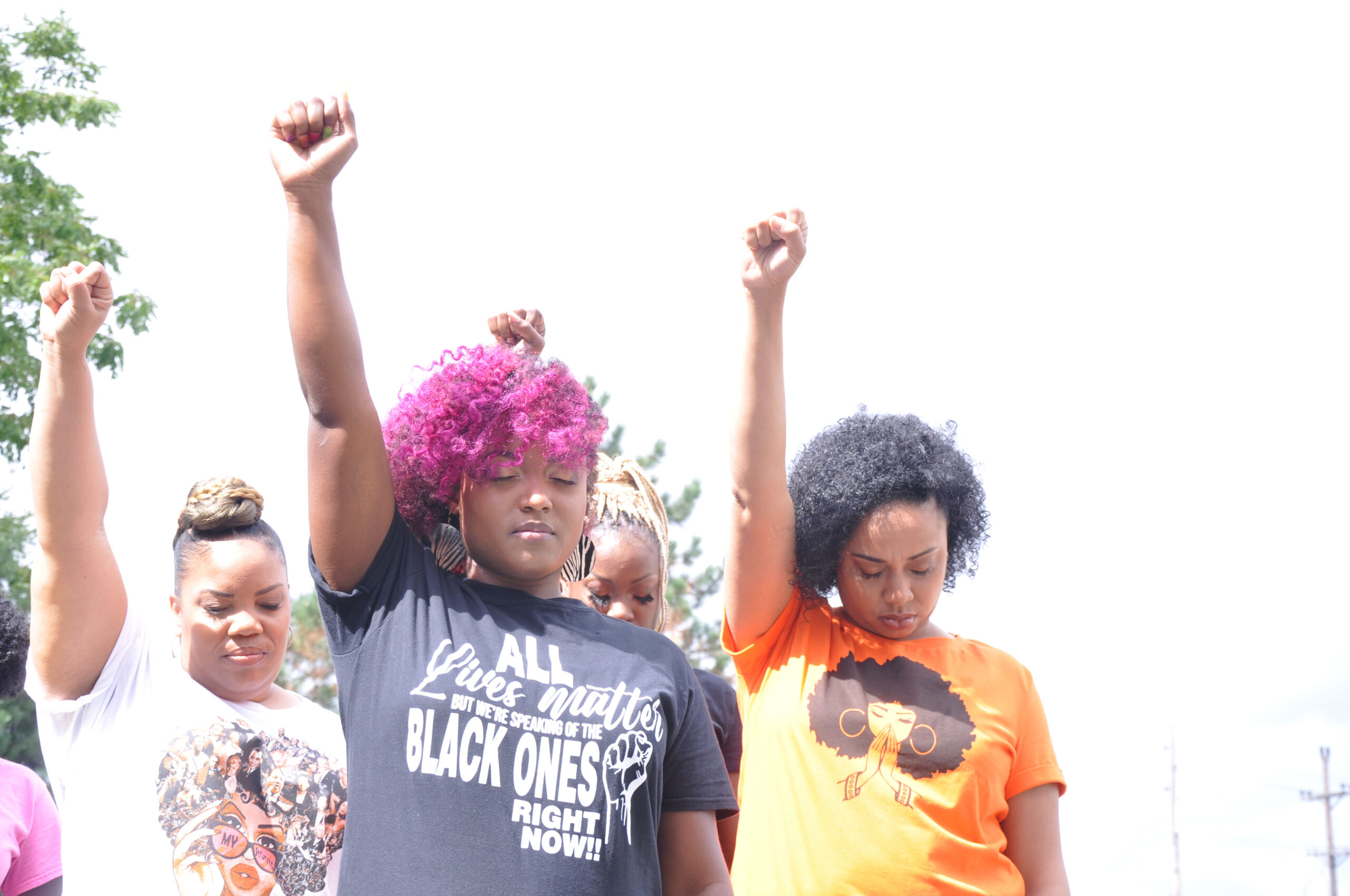Reading Pagan Kennedy’s piece, There Are Many Man-Made Objects. The Rape Kit is Not One of Them, was one of the reasons I decided to become a journalist. This NY Times article appeared in the June 17, 2020, Opinion section, but it reads more like a feature: it’s centered on Marty Goddard, the woman who was the true inventor of the rape kit. As a tireless advocate for women’s rights, Goddard and her work were constantly overshadowed by men. Despite her contributions, she ended up dying alone in a trailer park in Arizona, poor, addicted to alcohol, and struggling with mental illness.
Shortly after reading Kennedy’s piece, I applied to get my master’s in Journalism at NYU. I also made a personal vow that I would make sure Goddard’s story was told in a film or documentary. Later, when I got the opportunity to speak with Kennedy about her research and reporting, I found out that she had already received offers for the film to be produced in Hollywood. I wasn’t disappointed, just grateful that others recognized the invaluable work both of these women did, in their own ways, fields, and eras. In the following interview, Kennedy discusses the evolution of her beat, and offers advice for up-and-coming journalists. She also shares the reporting process for this story, which involved six months of research just to identify Goddard as the inventor. The following has been edited for clarity and length.
The Click: What are some things that people don’t know that journalists go through to create a story like this one? Did you ever want to give up? How long did it take from the beginning of your research to writing the piece, and what were some of the barriers and obstacles you encountered?
Kennedy: It’s not obvious how much being steeped in a subject area can lead you to stories that other people might not find. The area I’ve been writing about for the past 20 years is invention. For me, this the outgrowth of a longstanding fascination. I would say the story that first got me hooked on this was I wrote a piece almost 20 years ago—about Amy Smith at MIT, who was an incredible inventor.
Then I did a column for The New York Times Magazine, in which every single week I had to track down an inventor and tell their story. Then I wrote a book called “Inventology,” thinking about the origin of things. I figured out a lot of things that had weirdly not been written about very much. I created my own framework.
I’m very interested in innovation and invention. Like: What happens when people have control over technology themselves, particularly when women have control over technology that would otherwise be in the hands of a doctor or a cop? When they control it themselves, the empowerment, the power structures of technology. When the rape kit backlog was in the news quite a bit in 2017 or 2018, as I said in the piece, my thought wasn’t, “I’m not surprised that there is a backlog and the cops are throwing this away. I’m surprised [the rape kit] exists at all.”
Because by then, I had already tracked down so many origins of ordinary things, things that we take for granted. And I had seen that people who did the work often didn’t get the credit, and that they are usually somebody who has skin in the game. I’ve talked to many inventors who did the work because they just cared about the problem, because it was a problem they personally faced. So I was immediately skeptical that a cop would really be the sole inventor. Which made me wonder: how did this come into being?
The Click: How long did it take from that first question and your initial research to completing the final draft?
Kennedy: It’s complicated. In the beginning I was writing this as a small story that would go in a book; I had all this background knowledge and I had all these contacts and ways of thinking about things that were really valuable, but I was also thinking would be just one part of this book about feminist technology.. Then, there was a point at which I really dug in. I think maybe the moment where I found Cynthia, or possibly before that, when I realized how hard it was to track down the inventor. I thought it would be kind of simple to track, because at this point, I had a column where I tracked down people constantly. And I thought of myself as really good at finding people. But the fact that it was so hard to find her was really unusual. So that really intrigued me.
Usually I find an obituary or something in the patent system. I have all these techniques I learned because I was doing this nonstop, for about a year and a half at the weekly column. So that was weird. And then as I began to craft things and find people in the story, it became a lot more complicated. I realized I had to drop my whole previous idea about doing this as collection of stories about feminist technology. Then I really just went all in. I can’t tell you really how long that took; a long time, maybe a year. And then at the time when some things finally fell in place, the pandemic started happening here.
The Click: Since writing the story, how has your article made an impact or difference?
When I used to write, sort of pre-internet, you wouldn’t really know how it was striking an audience but with the Times you get hundreds of comments, on Twitter and other places. Usually feedback is mostly positive, but there’s either crazy trolls, a bunch of haters, or nitpickers. For this story, the positive responses were incredibly unusual and gratifying.
But for me, the immediate reaction of film options was surprising. Many other books have been optioned. But usually, there’s no chance it’s going to get made and there are just a couple of offers. This was like nothing I’d ever experienced. I was talking to movie stars everyday, it was totally bizarre. So that was very cool.
The Click: When you started out as a journalist, did you know this was the beat you wanted to cover or did it evolve in a different way?
Kennedy: I started out pre-internet. If there’s one thing I can tell you, it’s you don’t have any control. There will be new things coming along, new technologies, new media. When I started, the podcast didn’t exist. Social media posts didn’t exist. When I started, you got paid quite decently for print. I actually wrote fiction and had a life as a fiction writer in which I made money, which is not really possible anymore. So for me, it’s been a constant learning experience and a constant willingness to say, okay, that form of media, the way I was making money, is no longer sustainable. That sort of happens every five years. Now I have to learn something new and jump into a different form of media.
And I love that. I love to tell a story a different way, or just think about it in a whole different way for a different kind of audience. So I think that, in order to make a living, constantly be willing to let go of what worked for you in the past, and jump to a new format and figure things out.
The Click: Your article struck a deep chord in me, especially for individuals whose work and dedication are about giving justice to victims. Marty herself went through so many injustices in her experience because she tried to give voice to these victims, yet she was ignored and forgotten. How do you think your story has changed Marty’s legacy?
Kennedy: For me, this really wasn’t really about Marty Goddard. It’s about systems, the way the little story tells the big story. Obviously, I care about Marty Goddard and felt very, very connected to her. But the story is important because it shows us how it’s possible to catch perpetrators and that the people who are victims need to be involved in designing that system.
The legacy, really, is making people think about what’s broken and ask, how can I reinvent it? The motivation I have with every piece I write is for people to end up looking at something that seems inevitable and unchangeable and saying, ‘You know what, that’s just one way it could be, but how could it be better? How could it serve people who are not in power?’ What I want is to show that these things exist because people fought for them, and we all need to be speaking up. Just because you don’t have a degree in criminology doesn’t mean you can’t push to make the system work in a totally different and better way.
The Click: What did you learn from writing this piece and what advice would you give to journalists writing stories like this?
Kennedy: Learning how to tell stories, which is my great passion, is how to get people to pay attention and stay for the end, stick around and absorb information, and care. And that’s really the hardest thing there is to do. That’s something I made a study of my whole life. When I used to teach, which I don’t do anymore, I really pushed the idea that it’s not just one story. I see people, students, young writers get an idea and it’s sort of a half-good idea. And they get really sucked in and they do a ton of work and then they can’t let it go. I would say an enormous amount of the work you put in should be at the idea phase. You should throw out 99 ideas for every one you go forward with. Don’t start, don’t stick to idea number five and then go all in on it.
A good idea is very dangerous. Because you can lose a lot of time to it. And if it’s not working, if you pitch it and it’s not working, or if it has flaws or there’s something missing in the idea, if it doesn’t have a strong enough news hook or have a great character, then let go.
And get very good at asking questions. Like, why is it this way? Why is it that? And turning those questions into stories. And then having so many ideas that if somebody says that one’s not going to work, you can say, okay, I’ve got a hundred more. Idea generation, I can’t stress it enough. People over-defend their ideas, they reject criticism when somebody says, ‘I don’t think that’s gonna work.’ I have seen some students lose a lot of time when they say, ‘No, no, you don’t get it.’
So being really good at taking feedback is another piece of it. And that’s being very thankful for feedback, because somebody took the time to think about your story. Even if it hurts. In fact, I think when the blows really land on you, it really hurts. Because if the feedback isn’t really on point, it just kind of rolls off of you. But when it really hurts, in the back of your mind, you know that they’re right. That’s when it’s really hard to listen. All of that is super important, but you just start to learn it over time. And the more you go out there and do it and pitch stories, the more you develop a thick skin and a sense that if that one idea doesn’t work out, you’ve always got another.


